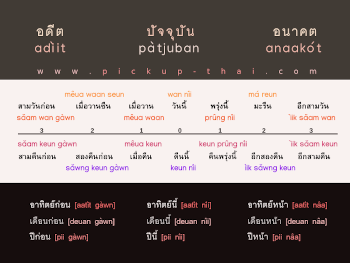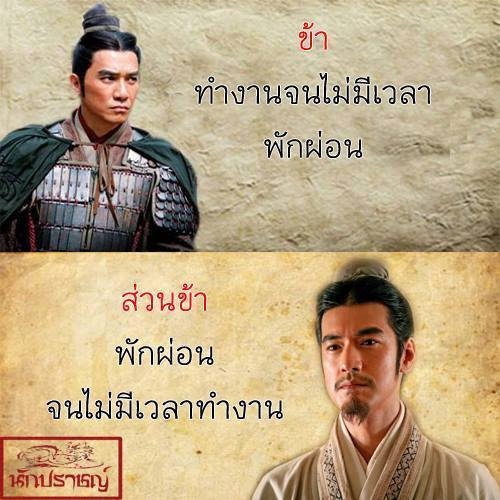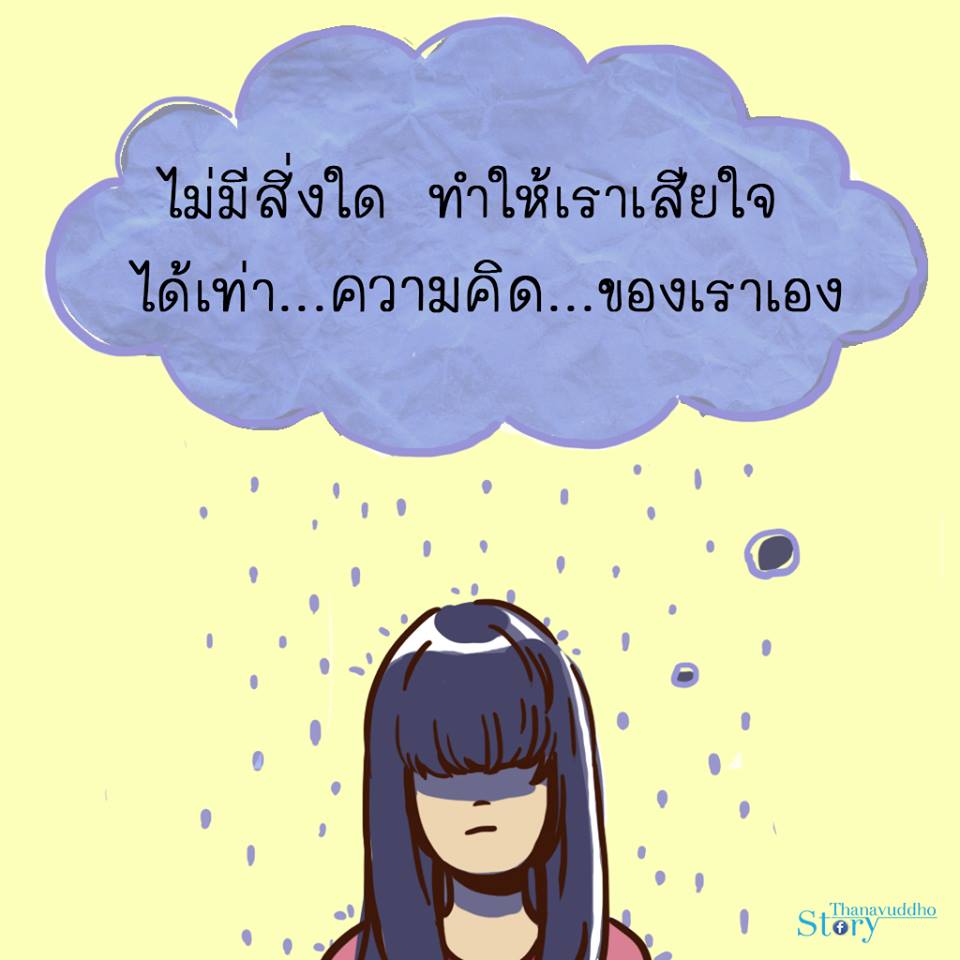
Choose the right resolution for your screen, and right-click on the image to save it to your computer.




Vocabulary
อดีต [adìit] past
ปัจจุบัน [pàtjuban] present
อนาคต [anaakót] future
สามวันก่อน [sǎam wan gàwn] 3 days ago
เมื่อวานซืน [mêua waan seun] the day before yesterday
เมื่อวาน [mêua waan] yesterday
วันนี้ [wan níi] today
พรุ่งนี้ [prûng níi] tomorrow
มะรืน [má reun] the day after tomorrow
อีกสามวัน [ìik sǎam wan] 3 days from today
สามคืนก่อน [sǎam keun gàwn] 3 nights ago
สองคืนก่อน [sǎwng keun gàwn] 2 nights ago
เมื่อคืน [mêua keun] last night
คืนนี้ [keun níi] tonight
คืนพรุ่งนี้ [keun prûng níi] tomorrow night
อีกสองคืน [ìik sǎwng keun] 2 nights from tonight
อีกสามคืน [ìik sǎam keun] 3 nights from tonight
อาทิตย์ก่อน [aatít gàwn] last week
อาทิตย์นี้ [aatít níi] this week
อาทิตย์หน้า [aatít nâa] next week
เดือนก่อน [deuan gàwn] last month
เดือนนี้ [deuan níi] this month
เดือนหน้า [deuan nâa] next month
ปีก่อน [pii gàwn] last year
ปีนี้ [pii níi] this year
ปีหน้า [pii nâa] next year…








